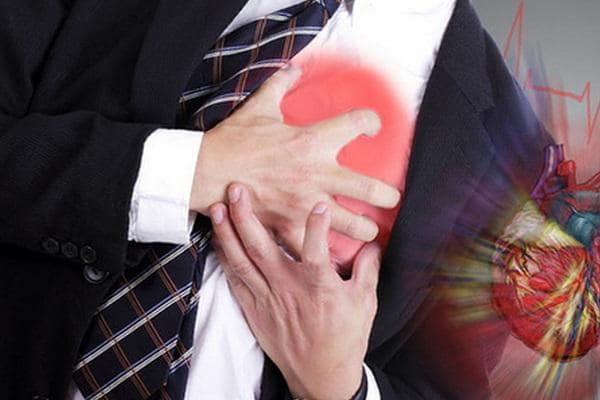Why are pressure surges so dangerous? Blood pressure is constantly changing depending on stress, rest and emotion. However, even with such fluctuations, it should not exceed the norm, that is, 139/89 mm Hg. Unfortunately, more and more people suffer from hypertension, often without even realizing it. They may not experience any symptoms for many years. For such people, sudden pressure surges can be especially dangerous and lead to heart attack, stroke and, as a result, death. Therefore, it is worth knowing what symptoms may accompany sudden pressure surges.
Sudden pressure jumps symptoms
Severe chest pain. One of the most common symptoms is severe chest pain, usually caused by overgrowth of the heart muscle and its ischemia or deterioration of kidney function. The pain, usually suffocating, stabbing and pressing, is localized near the sternum and spreads to the lower jaw and left shoulder. The pain should last up to 20 minutes, but if it lasts longer, it could be a sign of a heart attack. Then you should respond as soon as possible and call an ambulance, especially if the pain is accompanied by shortness of breath, cold sweats, or sudden restlessness.
Dyspnea. Pressure surges can also be associated with shortness of breath. Too high pressure leads to a decrease in blood flow through the vessels and organs, which leads to insufficient blood circulation and a violation of the supply of oxygen to cells. A person experiencing pressure surges may have shortness of breath, rapid and shallow breathing, and an irregular or rapid heartbeat.

Strong headache. An alarming symptom that may indicate pressure surges is recurrent severe headache, especially in the back. This pain makes itself felt, especially in the morning. This symptom should not be taken lightly, and then it is worth measuring the pressure. Headache can be a sign of significant pressure fluctuations caused by adrenal pheochromocytoma. This may be accompanied by symptoms such as rapid heart rate, increased sweating, or anxiety. Headache can also occur with a hypertensive crisis, i.e. a jump in systolic pressure above 160 mm Hg. Art. And diastolic pressure above 120 mm Hg. Art. The pain then pulsates on both sides and increases with exertion. It disappears a few hours after the pressure has returned to normal.

Visual impairment. High blood pressure damages blood vessels, especially the endothelium of the arteries. This can reduce blood flow in the vessels of the organ of vision and, as a result, lead to visual impairment. Pressure surges for which the vessels are not prepared can be even more dangerous. They can manifest as sudden blurred vision, spots in front of the eyes, or flashes in the eyes. Then it is worth visiting an ophthalmologist who will examine the fundus to determine if there is any damage. Failure to respond quickly can lead to permanent visual impairment or even loss of vision.
Hand tremor. Symptoms of pressure surges can also be hand tremors, that is, involuntary movements of associated muscle groups. A handshake can indicate intense emotion or stress before an important exam or difficult conversation. In such situations, pressure surges also occur, which are accompanied by various symptoms, including: increased heart rate, facial flushing, or increased sweating. As soon as the nervousness is gone, the shaking of the hands should also disappear. However, there may be other, more serious reasons for this symptom. Seizures associated with sudden pressure surges that do not respond to treatment may indicate pheochromocytoma. The tumor secretes catecholamines, including adrenaline, which contributes to an increased heart rate and vasoconstriction and, as a result, a sudden increase in blood pressure.

Anxiety. You may also experience intense anxiety during a pressure surge. This may be due to severe stress, anxiety, or a release of norepinephrine (e.g., caused by a pheochromocytoma). Feelings of anxiety and confusion prevent you from rationally collecting your thoughts and may be associated with breathing problems, chest tightness, arousal, and dilated pupils.








